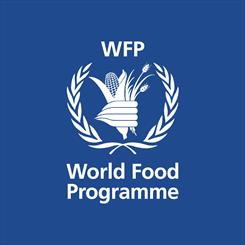“We appeal to all warring parties to the conflict to allow us to replenish our food and fuel stocks to save lives,” said Purnima Kashyap, WFP Representative and Yemen Country Director.
Two weeks of escalating violence have left many Yemenis hungry, trapped inside their cities and villages with food stocks running low. There are also severe fuel shortages, especially in Aden and areas of the capital Sana’a. The situation is of particular concern because almost half of the population of Yemen is food-insecure, struggling to grow or buy enough food for a normal, healthy life.
“We have prepositioned food in the last few days before the fighting flared up but we are struggling to reach people due to the deteriorating security situation,” said Kashyap.
A Comprehensive Food Security Survey carried out by WFP in 2014 found that 10.6 million people, or 41 percent of the population, were food insecure. Of these, 5 million people were found to be severely food insecure and in need of food assistance. It is estimated today, following the escalation of violence, that more than 12 million Yemenis are food insecure.
· Yemen imports almost 90 percent of its basic food from abroad. WFP is extremely concerned that the impact of traders being unable to import food and move it inside the country will affect people’s ability to feed their families, especially the poor and most vulnerable.
· In most of the areas worst hit by the conflict, shops and food markets are closed and the supply of food and other essentials has been seriously disrupted.
· An interagency rapid assessment of the humanitarian situation in Aden showed that access to food is one of the most serious problems in all locations, with shops closed or people unable to leave homes to go to markets. Lack of cooking gas and increasing food prices have been also reported in many parts of the governorate.
· WFP provided food assistance in the last few days to cover April and May needs to 16,000 refugees, mainly Somalis, in Kharaz camp some 136 kilometres from Aden. WFP has also provided a two-month food ration to over 13,000 people in Mazraq I and III camps, mostly displaced by the earlier conflict in the northern Sa’ada region.
· After the escalation of the conflict earlier this month, WFP was able to continue cash distributions through the Yemen Post. WFP provides cash transfers to severely food-insecure households as a ‘top-up’ to monthly cash assistance they already receive from the government. In Lahj, Marib, and Sana’a, WFP distributed nearly US$1 million in this way to more than 76,000 people.
· In southern governorates, people face a shortage of wheat flour, the price of which has increased by nearly 40 percent since the start of the wider conflict.
WFP is the world's largest humanitarian agency fighting hunger worldwide, delivering food assistance in emergencies and working with communities to improve nutrition and build resilience. Each year, WFP assists some 80 million people in around 75 countries.
PT
MNA
END

























Your Comment